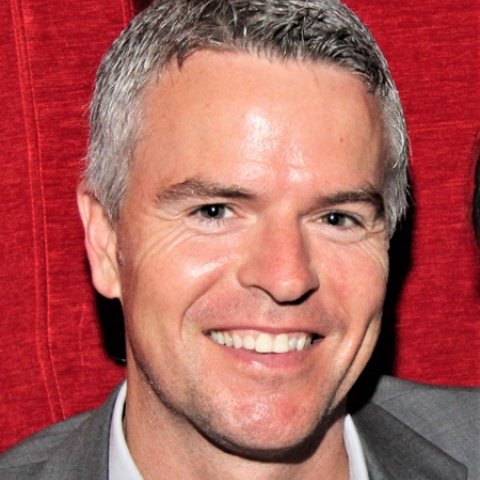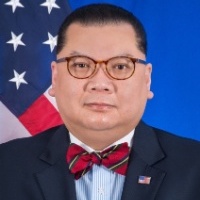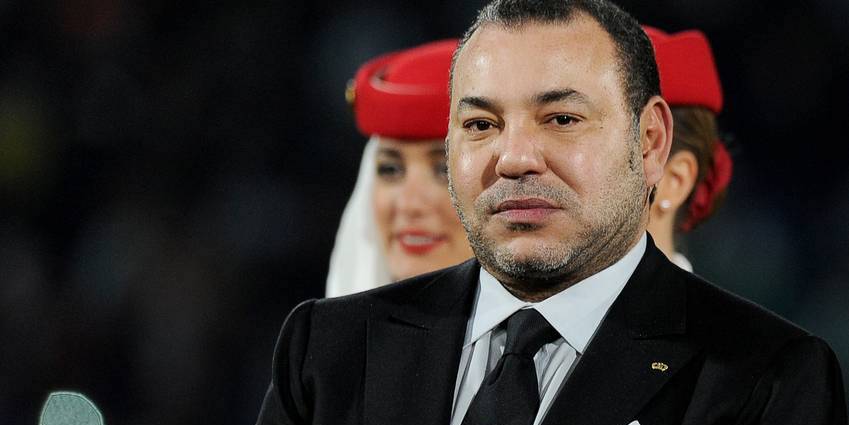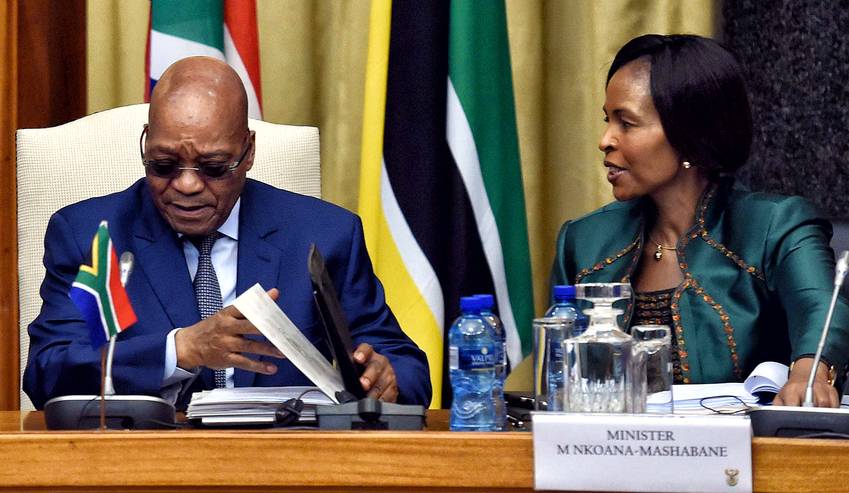News
Morocco wrong-foots its African critics
For the time being, Morocco wants to focus African attention on the benefits its membership of the African Union delivers to the collective.

Former Deputy Director, The Brenthurst Foundation

Director, The Brenthurst Foundation

Vice-president at the Washington-based Atlantic Council

The continued denial of “self determination” for the Sahrawis is a central argument of the 15 member states who voted against Morocco’s readmission to the African Union.
If Morocco eventually gets its way, "defeat into victory" – a phrase popularised by famed Word War ll Field Marshal William Slim – might prove an apt description of its new approach towards the African Union (AU). By joining the AU without the Sahrawi Arab Democratic Republic (SADR) exiting the organisation, Rabat appears to have accepted defeat in one key political battle.
But victory in the war is now within reach.
Following a vote this week by 39 (out of 54) African states in favour of its readmission to the AU after a 33-year absence, King Mohammed VI, addressed the 28th African Union Summit. He gushed that Morocco, a founding member of the AU's predecessor, the Organisation of African Unity (OAU), was coming "back home, after having been away for too long". The North African country left the OAU in 1984 after SADR was controversially invited in despite fierce opposition from Morocco and nearly 20 other members. SADR claims sovereignty over the Western Sahara territory, which Morocco claims as its own. Until recently Moroccan officials averred that the kingdom could not (re)join unless SADR's seat at the AU was withdrawn on the grounds that co-membership would be tantamount to recognition.
For decades, the struggle to preserve sovereignty over this disputed territory has come to be viewed as something of a sacred obligation within Morocco. Until recently it was virtually taboo, something that was never spoken about in terms other than the official narrative – ie the Western Sahara is an ineluctable part of Morocco and always has been, end of story. For all King Muhammed VI's genuine popularity and importance to national identity, the existence of the monarchy in its present form was widely seen to be dependent on the outcome in the Western Sahara, since its cause had become a national rallying point almost as important as the royal house's descent from the prophet Mohammed and the sovereign's role as "commander of the faithful".
Perhaps it remains so. But Morocco has opted to change tactics and play the long game.
Retaking a seat in Addis Ababa alongside SADR suggests that Morocco's leadership is not only assiduous but also increasingly willing to permit civil society, intellectuals and others to contribute to the debate. It also reckons that African opinion has irreversibly shifted its way. Support for the Polisario Front – the liberation movement that proclaimed SADR and fought (and largely lost) a war against Morocco until a UN-brokered ceasefire in 1991 (which left the kingdom in possession of virtually the entirety of the territory, including all of its coastline) – is slumping under the relentless weight of Rabat's nimble diplomacy and economic heft. The message has finally got through: Morocco is a country of serious political and economic clout, integral to the continent's development and prepared to play a leading role in its future. And Morocco comes without preconditions. But make no mistake: an emboldened Morocco inside the AU may be better placed to effect a final blow to the Polisario's dreams of real statehood than it ever was outside the continental body.
If that is indeed the thinking, how that process might unfold bears careful consideration. Consequences for the AU, for regional security and prosperity, and, above all, for the Sahrawi people are sure to be significant.
In human welfare terms, the Sahrawis have most to lose by maintenance of the status quo. The historically nomadic Sahrawi tribes have long been pawns in regional power plays – mostly recently involving rivals Morocco and Algeria since Spain withdrew from what was then known as Spanish Sahara in 1976. The Western Sahara is one of several intractable conflicts that has defied African and wider international efforts to facilitate its "solution" for decades. At its heart, not unlike Cyprus or Israel/Palestine, lay sharply contrasting interpretations of key historical events, which shape the opposing communities' identities as well as their sense of justice and what is rightfully theirs.
In general, the international community has been equivocal in the face of each side's competing claims, encouraging dialogue and emphasising the need for a peaceful resolution. Only about a quarter of UN member states currently recognise SADR (although, in a number of cases, the ‘recognition' came in the form of a declaration years ago and the jus legationis has never been exercised) and over the years several have de-recognised it. Until yesterday's vote, the AU Commission had, by its own admission, more or less buried its head in the sand. Since 2002, the body did little more than continually reiterate its support of the on-going efforts by the UN to find a solution to the conflict consistent with relevant Security Council and General Assembly resolutions that will provide for the self-determination of the people of Western Sahara.
The continued denial of "self determination" for the Sahrawis is a central argument of the 15 member states who voted against Morocco's readmission. In a brief article published in these pages last month, South Africa's Minister of International Relations and Co-operation used the term no less than eight times in support of SADR's claim to independence. It was foreign policy reduced to cookie-cutter platitudes: no acknowledgement that the concept of ‘self determination' is highly contested terrain not just in Africa but across all continents. In international law the principle often collides with "territorial integrity", with no clear track to reconcile the two. Moving negotiations over the Western Sahara to the corridors of the AU will matter not if leading members like South Africa continue to frame "self-determination" exclusively by decolonisation and "all-or-nothing" proposals. In its crude, Manichean world defined by liberation struggles and race, Pretoria continues to see Morocco as a colonial power.
Unsurprisingly the African National Congress (ANC) has responded negatively to Morocco's readmission, describing the decision as "regrettable" and "a significant setback to the cause of the Sahrawi people and their quest for self-determination and independence in the Western Sahara".
Self-determination is not, however, simply a moment of liberation. Questions of viability – the ability to control, defend and administer a defined territory and population – should be of primary concern. Africa's most recent experience of new statehood affords a harrowing reminder. South Sudan garnered near unanimous support from its own people and overwhelming backing from the international community for its newfound independence in 2011. Even Khartoum eventually came around to endorsing the breakaway of the south and was the first state to recognise it. Yet chaos and mass violence in South Sudan has expanded nearly year on year since independence. Worldwide, only Syria is worse.
None of this is to gainsay the strength of nationalist sentiment in Western Sahara. For all Morocco's investment in the territory and concerted efforts to bring a Sahrawi elite into the establishment, there is no avoiding the continuing perception of an occupation, complete with checkpoints, allegations of mistreatment by security forces and the like. That does not make independence any more of a panacea, but it does illustrate that despite growing acceptance of the Moroccan position within the AU it still has much work to do to counter the almost irresistible lure of "independence" among some Sahrawi communities.
With Morocco inside the AU it seems more likely that attention will focus more and more on the role of Algeria, which is essential to any deal on the Western Sahara. Morocco has always maintained that Polisario is not only backed and funded by Algeria, but in fact has no sovereign decision-making power; its leaders take direct orders from Algiers, which is less committed to the Sahrawi people than it is to anything that might unsettle Morocco. Algeria has used the Western Sahara as a political football in its fight for regional supremacy and a means to consolidate domestic support in a country still struggling with the consequences of its brutal, murky civil war and the myriad sources of potential instability within its borders. But so, to a more limited extent, has Morocco.
The legacy of mistrust between the two countries has kept their shared 1,559km land border closed since 1994 and fuelled a dangerous arms race. It is difficult to say whether Morocco finally joining Algeria at the AU might lead to a rapprochement between bitter rivals. Algeria's ailing President Abdelaziz Bouteflika was the country's foreign minister when the Polisario was established in the 1970s (Morocco's current king was just 10 years old) and his regime comprises a cadre of war-hardened officials not easily given to compromise. But both administrations are under pressure to deliver wider political reform. And their public clearly seeks a normalisation in relations.
It will be interesting to observe how the AU handles the broad autonomy plan for the Western Sahara devised by Morocco in 2007. The plan, which affords the Western Sahara executive, legislative and judicial powers whilst Rabat would retain defence, foreign affairs and the currency, as well as the religious prerogatives of the king, has received considerable international endorsement and remains Morocco's main plank for negotiations. For senior SADR officials, the autonomy plan remains a non-starter. They want a binding referendum with full statehood on the ballot.
One key issue not addressed by the plan is hybridity: how, in its institutional and legal makeup, can the new autonomous entity be fully democratic while the "parent state" would continue to function as a monarchy where the king effectively controls the key levers of the state? Whether a democratic, self-governing Western Sahara could be embedded within a infinitely more powerful Morocco whose own political evolution is still very much a work-in-progress is an open question. What is clear is that the instincts of Morocco's relatively young king are reformist. Morocco is not a liberal democracy but its process of democratisation is more advanced than any country in the region. The Western Sahara will be an important litmus test.
No one can be sure of Morocco's time table for pressing a resolution of the Western Sahara question at the AU. Over the past 30 years, Rabat's diplomacy has been underpinned by the belief that the liberation struggle will turn out to be a "blip in the longue durée", an idea that will eventually burn itself out, just as many self-determination movements have, over time, been compelled to scale back their once-steadfast ambitions for statehood. Morocco's re-entry to the AU suggests that Rabat may have tired of waiting and is now committed to actively altering the status quo.

Any political settlement on the Western Sahara hatched at the AU is likely to have ramifications for other countries in the region – such as Mauritania, Algeria and Libya – which have within their borders the potential for other Saharan states. It is worth recalling that the forefathers of today's Polisario, many of whom were trained in the Soviet bloc, aspired to spark a revolution across the entire Sahara region not just the present-day territory of the Western Sahara. When weighing up the viability of any strategy, for the Western Sahara as much as other existing or simmering conflicts, the region's history speaks to the acute importance of identity. The region comprises some of the poorest populations in the world but also some of the strongest identities, most of which are not confined to one state. In attempting to forge a common will of living together, the colonial legacy does not necessarily provide the AU with the most effective means to promote stability, prosperity and safeguard peoples' identities.
Morocco has no doubt calculated that its autonomy plan will elicit greater support within Africa the more it can show its worth to the continental body.
Africa – and particularly the AU – must lead in defining its own changing security landscape and devise effective, comprehensive and coherent responses to security challenges. In North Africa and the Sahel, there is an urgent requirement to strengthen logistical coordination and intelligence cooperation among all countries affected by insecurity and pool resources and materiel for joint security operations. Previously excluded from multilateral African responses, Morocco will now be able to throw its political, military and economic clout, as well as its direct experience of terrorism, behind operations. AU member states also stand to benefit from Morocco's relations and strong political and economic interests with the European Union, its membership in the Nato Mediterranean Dialogue (which also includes Algeria, Tunisia, Egypt and Mauritania), and its privileged status as a "major non-NATO ally" of the United States, to strengthen military co-operation with these major powerful players.
Morocco's fight with Algeria over the Western Sahara has impeded regional economic integration at least as much as security co-operation. This lack of integration has blocked potentially enormous opportunities for development in the areas of infrastructure, transport and energy, which could have a transformative impact on poverty, job creation and food security across a broad swathe of the continent. Membership of the AU will not necessarily ameliorate their fundamental dispute or indeed help resuscitate the moribund Arab Maghreb Union (AMU) – arguably the least effective regional economic community not just in Africa but the world – of which they are both members, but there can be no doubt that it will shine further light on the immense potential for complementarity between the two states: oil-rich Algeria, which exports almost nothing to other Maghreb countries, and Morocco, with its diversified economy, including sophisticated banking, manufacturing (notably aerospace and cars), and resources (mainly phosphates) sectors, along with a highly-developed tourist industry and advanced capabilities in renewable energy.
Morocco is already one of the continent's key hubs for integration and commerce – and membership of the AU is likely to enhance that. The inter-continental Tanger Med port and the expansion of Casablanca airport are only two of several existing projects which demonstrate what might be possible, if better linked to other countries' investments in road and rail infrastructure. When Tanger Med's fourth terminal opens in two years, it will be Africa's biggest container port with the new construction alone having an annual handling capacity more than twice that of Durban's largest terminal. As a member of the AU, Rabat will be well positioned to serve as a channel for internal aid to African infrastructure projects, with Moroccan firms serving as the implementation agents in sectors such as agriculture, health and water. In his speech to the AU this week, Mohammed VI singled out for mention the Africa Atlantic Pipeline project he recently launched with Nigeria's President Muhammadu Buhari that will eventually export gas from West African countries to Europe as well as power a regional electricity market.
Morocco's rapid development over the past 20 years puts it among very few African countries that can genuinely claim to be an economic model for the rest of the continent.
Beyond Europe, Morocco retains considerable influence in the Muslim world – as a founding member of the Organisation of the Islamic Conference and a member of the League of Arab States. This is particularly true of the Gulf states, as more summits of the two bodies have taken place in Morocco than any other Arab or Muslim country (the frequent visits of Saudi Arabia's king and the United Arab Emirates' leader is a case in point).
These are all important new assets the African Union can capitalise on with Morocco back in the tent. In his address to the AU Summit, King Mohammed VI exclaimed that "Africa is my continent and my home. I am finally home and I am happy to see you. I missed you all". Tellingly, he did not refer once to the Western Sahara issue. For the time being, Morocco wants to focus African attention on the benefits its membership delivers to the collective. But potentially, even these will not be as consequential for the organisation as the affirmation of unity and deeper integration Morocco's membership symbolises.
For the first time ever, the African Union and Africa are one and the same. Only time will tell if that unity will hold.
This article was originally published in The Daily Maverick.

